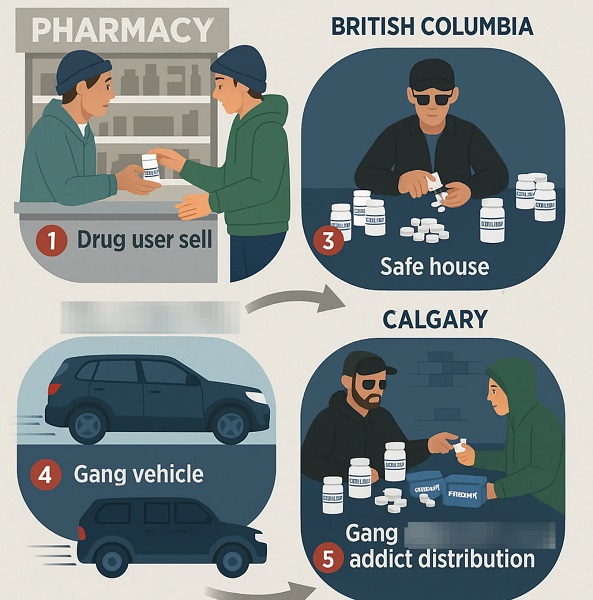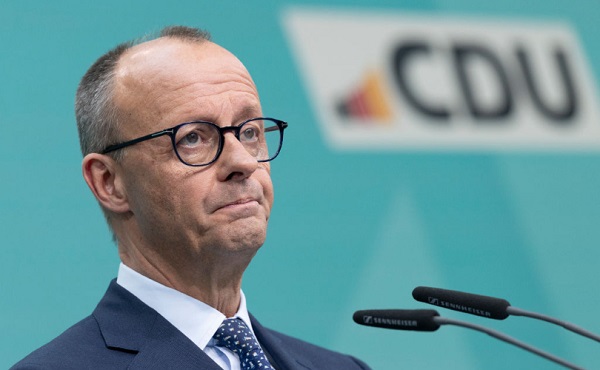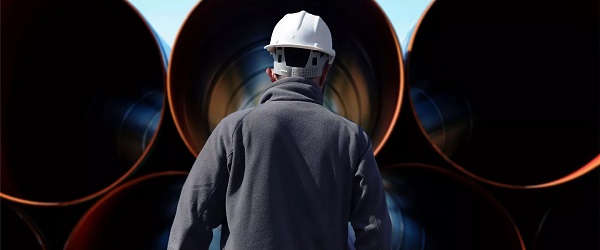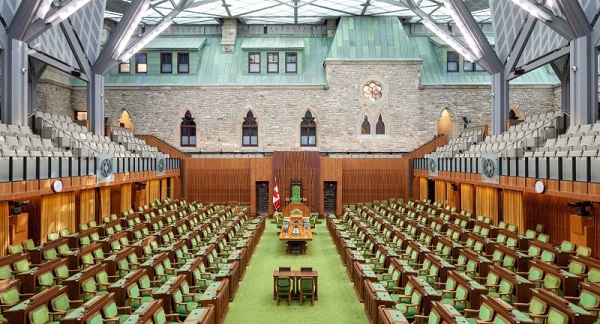Business
Ottawa must listen to the West
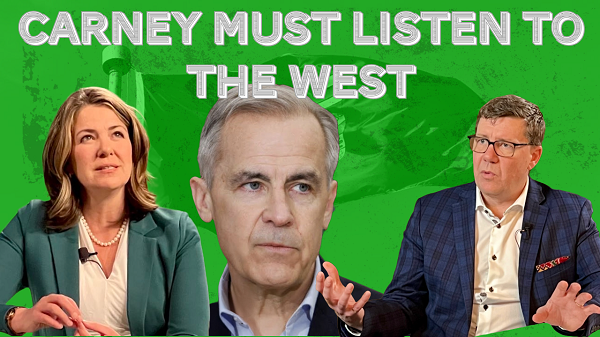
If Prime Minister Mark Carney doesn’t listen to the West, it’s going to cost Canada.
Alberta Premier Danielle Smith and Saskatchewan Premier Scott Moe are demanding that Ottawa stop stomping on their provinces’ natural resource production.
Smith is telling Carney to scrap the no more pipelines law, Bill C-69, lift the cap on Alberta’s energy and cancel the looming ban on the sale of new gasoline and diesel vehicles.
Moe is stepping in sync with Smith, listing Saskatchewan’s demands in a letter, calling for changes to the no more pipelines law, saying, “there are a few policies that are going to have to go.”
Moe is also taking aim at the industrial carbon tax saying “the tax can’t be charged on the electricity for Saskatchewan families.”
The new prime minister says he’s listening.
“I intend to govern for all Canadians,” said Carney in his election victory speech.
If that’s true, Carney must heed the demands of Smith and Moe, because Ottawa’s anti-West policies are damaging the economy and costing taxpayers a truckload of money.
How much?
Ottawa’s cap on oil and gas emissions – which creates a cap on production – will cost the Canadian economy about $20.5 billion and slash 40,000 jobs by 2032, according to the Parliamentary Budget Officer.
Canada has also seen nearly $670 billion in natural resources projects suspended or cancelled, since 2015.
To put that kind of money into perspective: $670 billion would pay for the salaries of hundreds of thousands of paramedics and police officers, for a decade.
That’s the equivalent to the value of more than one million houses in Alberta or almost two million homes in Saskatchewan.
That kind of money is worth the entire income tax bills for the populations of Alberta, Saskatchewan and Manitoba for about 10 years.
That’s just the lost money from natural resources.
Carney’s looming ban on the sale of new gasoline and diesel vehicles also has a huge price tag.
Canada’s vehicle transition could cost up to $300 billion by 2040 to expand the electrical grid, according to a report for Natural Resources Canada.
If Carney is serious about boosting the economy and governing for all Canadians, getting the government out of the way of natural resource projects and scrapping the expensive plan to stop people from buying new gas and diesel vehicles is a good first step.
The West has been firmly asking for Ottawa to mind its own business for years.
Cancelling the industrial carbon tax is another way for Carney to show that he’s serious about growing the economy and governing for all Canadians.
On the same day Carney scrapped the consumer carbon tax, the Saskatchewan government dropped its industrial carbon tax down to zero.
“By eliminating industrial carbon costs which are often passed directly on to consumers – the province is acting to protect affordability and economic competitiveness,” said the Saskatchewan government’s news release.
Alberta’s industrial carbon tax is now frozen. Increasing the tax above its current rate would make Alberta “exceptionally uncompetitive,” according to Alberta Environment Minister Rebecca Schulz.
Business groups in both provinces lauded each premier, saying it would make their industries more competitive and help bring down costs.
When Ottawa forces businesses like fuel refineries or fertilizer plants to pay the carbon tax, they pass on those costs on to taxpayers when they heat their homes, fill up their cars and buy groceries.
If companies are forced to cut production or leave the country because of the industrial carbon tax and policies like the energy cap, it’s regular Albertans and Saskatchewanians who are hurt the most through job losses.
If Carney intends to govern for all Canadians he needs to listen to Smith and Moe and scrap these policies that are set to cost taxpayers billions and slash tens of thousands of jobs.
Kris Sims is Alberta Director and Gage Haubrich is Prairie Director for the Canadian Taxpayers Federation.
Automotive
Canada’s EV house of cards is close to collapsing

 By Dan McTeague
By Dan McTeague
Well, Canada’s electric vehicle policies are playing out exactly as I predicted. Which is to say, they’re a disaster.
Back in November, in the immediate aftermath of Donald Trump’s re-election, I wrote in these pages that, whatever else that election might mean for Canada, it would prove big trouble for the Justin Trudeau/Doug Ford EV scam.
The substance of their plot works like so: first, the federal and provincial governments threw mountains of taxpayer dollars in subsidies at automakers so that they’d come to Canada to manufacture EVs. Then Ottawa mandated that Canadians must buy those EVs — exclusively — by the year 2035. That way Ford and Trudeau could pat themselves on the back for “creating jobs,” while EV manufacturers could help themselves to the contents of our wallets twice over.
But the one variable they didn’t account for was a return of Donald Trump to the White House.
Trump had run on a promise to save America from their own back-door EV mandates. Though Kamala Harris had denied that any such mandates existed, they did, and they were founded on two acts of the Biden-Harris administration.
First, they issued an Executive Order setting significantly more onerous tailpipe regulations on all internal combustion engine (ICE) vehicles, with the explicit goal of ensuring that 50 percent of all new vehicles sold in America be electric by 2030.
Second, they granted California a waiver to make those regulations more burdensome still, so that only EVs could realistically be in compliance with them. Since no automaker would want to be locked out of the market of the most populous state, nor could they afford to build one set of cars for California (plus the handful of states which have — idiotically — chosen to align their regulations with California’s) and another set for the rest of the country, they would be forced to increase their manufacture and sale of EVs and decrease their output of ICE vehicles.
Trump’s victory took Canada’s political class completely by surprise, and it threw a spanner into the workings of the Liberals’ plan.
That’s because there just aren’t enough Canadians, or Canadian tax dollars, to make their EV scheme even kinda’ work. Canada’s unique access to the world’s biggest market — America — was a key component of the plan.
After all, vehicles are “the second largest Canadian export by value, at $51 billion in 2023, of which 93 percent was exported to the US,” according to the Canadian Vehicle Manufacturers Association, and “Auto is Ontario’s top export at 28.9 percent of all exports (2023.)”
It further depended on Americans buying more and more EVs every year. But since, when given a choice, most people prefer the cost and convenience of ICE vehicles, this would only work if Americans were pushed into buying EVs, even if in a more roundabout way than they’re being forced on Canadians.
Which is why the plan all began to unravel on January 20, the day of Trump’s inauguration, when he signed Executive Order 14154, “Unleashing American Energy,” which, among other things, rescinded Joe Biden’s pro-EV tailpipe regulations. And it has continued downhill from there.
Just last week, the US Senate voted to repeal the Biden EPA’s waiver for California. Not that that’s the end of the story — in the aftermath of the vote, California governor Gavin Newsom vowed “to fight this unconstitutional attack on California in court.” (Though don’t be surprised if that fight is brief and half-hearted — Newsom has been trying to leave his lifelong leftism behind recently and rebrand as a moderate Democrat in time for his own run at the White House in 2028. Consequently, being saved from his own EV policy might only help his career prospects going forward.)
But it’s worth noting the language used by the Alliance for Automotive Innovation, which represents car companies like Toyota, GM, Volkswagen and Stellantis (several of whom, it should be noted, have received significant subsidies from the Liberal and Ford governments to manufacture EVs), which said in a statement, “The fact is these EV sales mandates were never achievable.”
That’s worth repeating: these EV sales mandates were never achievable!
That’s true in California, and it’s true in Canada as well.
And yet, our political class has refused to accept this reality. Doug Ford actually doubled down on his commitment to heavily subsidizing the EV industry in his recent campaign, saying “I want to make it clear… a re-elected PC government will honour our commitment to invest in the sector,” no matter what Donald Trump does.
Except, as noted above, Donald Trump represents the customers Doug Ford needs!
Meanwhile, our environmentalist-in-chief, Mark Carney, has maintained the Liberal Party’s commitment to the EV mandates, arguing that EVs are essential for his vacuous plan of transforming Canada into a “clean energy superpower.” How exactly? That’s never said.
These are the words of con artists, not men who we should be trusting with the financial wellbeing of our country. Unfortunately, in our recent federal election — and the one in Ontario — this issue was barely discussed, beyond an 11th-hour attempted buzzer-beater from Pierre Poilievre and a feeble talking point from Bonnie Crombie about her concern “that the premier has put all our eggs in the EV basket.”
Meanwhile, 2035 is just around the corner.
So we can’t stop calling attention to this issue. In fact, we’re going to shout about our mindless EV subsidies and mandates from the rooftops until our fellow Canadians wake up to the predicament we’re in. It took some time, but we made them notice the carbon tax (even if the policy change we got from Carbon Tax Carney wasn’t any better.) And we can do it with electric vehicles, too.
Because we don’t have the money, either as a nation or as individuals, to prop this thing up forever.
Dan McTeague is President of Canadians for Affordable Energy.
Business
Patriotic Millionaires concept of tax ‘fairness’ ignores tax facts in Canada

From the Fraser Institute
By Jake Fuss and Tegan Hill
A group of wealthy Canadians called the “Patriotic Millionaires” recently asked governments in Canada to increase the amount of taxes they pay to “ensure greater fairness” in the system. In particular, the group is calling for a wealth tax and higher taxes on capital gains.
Unfortunately, the Patriotic Millionaires (whose motto is “Tax the rich!”) seem to misunderstand the current distribution of taxes paid by different income groups in Canada and the economic consequences of raising taxes.
The fixation on tax “fairness” (which the Patriotic Millionaires never actually define) is not new in Canada. It was a constant focus of the Trudeau government, which decided to increase “fairness” by increasing the top federal personal income tax rate from 29 per cent to 33 per cent in 2016 and proposing to raise taxes on capital gains in 2024.
These policies, like the Patriotic Millionaires, ignored basic facts about taxes. According to a recent study, the top 20 per cent of income-earning families in Canada paid 54.2 per cent of all federal, provincial and local taxes while earning less than half of the country’s total income (46.4 per cent). These families are the only income group in Canada that pay a larger share of taxes than their share of income.
In contrast, the remaining 80 per cent of Canadian families pay less in taxes than their share of total income. For example, the bottom 20 per cent of income-earning families pay 2.0 per cent of total taxes while earning 5.0 per cent of total income.
Why? Because Canada, like most advanced economies, has a progressive income tax system where government taxes individuals at increasingly higher rates as their income rises. For example, the marginal federal tax rate is 15 per cent on individual incomes up to $57,375 but more than double that rate (33 per cent) on income that exceeds $253,414.
According to the Patriotic Millionaires, Canada needs a “wealth tax,” which taxes a person’s net wealth. But time and time again, wealth taxes have failed to deliver the promised results of proponents. Eight European countries that experimented with wealth taxes have since abandoned them because they were expensive to administer, raised little revenue and imposed enormous costs on their economies. In particular, wealth taxes discourage investment, which is needed to broadly raise living standards and improve prosperity, by prompting people to move their assets away from productive investments (e.g. new businesses) to investments that may be exempt from the tax.
So, if Ottawa implemented a wealth tax, we’d likely see a reallocation of investment away from startups and towards housing (assuming housing remains exempt from the tax). Consequently, companies and investors would have less resources to invest in the technology, machinery and equipment that improve productivity, create jobs and drive higher living standards, particularly for average workers.
The Patriotic Millionaires also want to raise taxes on capital gains, which would have similar negative effects by making it more expensive for individuals and businesses to invest in Canada, leading to stagnant wages and living standards for Canadians.
The Patriotic Millionaires are misguided in their claims about “fairness” in the tax system. High-income earners already pay the majority of all taxes in Canada, and proportionality is one of the only objective measures of fairness with respect to the tax burden. Their policy proposals, if enacted by government, would only harm the economy rather than help it. That wouldn’t be fair to Canadian workers.
-
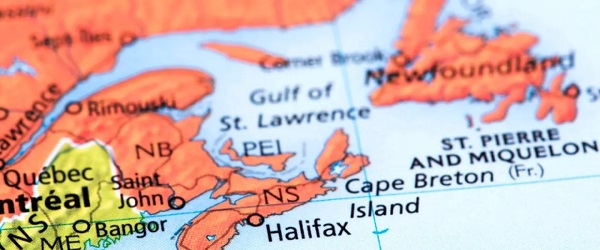
 Fraser Institute2 days ago
Fraser Institute2 days agoAtlantic provinces should focus on growth—despite Carney’s transfer policies
-
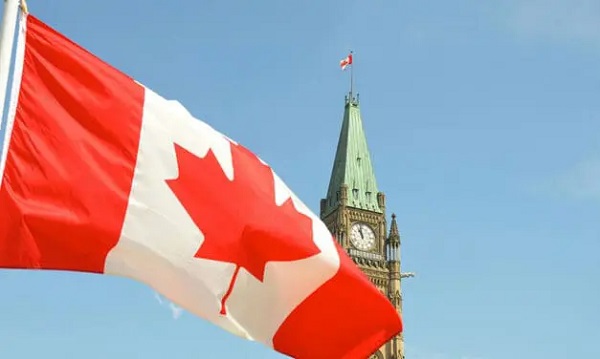
 Indigenous2 days ago
Indigenous2 days agoCarney’s Throne Speech lacked moral leadership
-

 Economy2 days ago
Economy2 days agoCanada Treats Energy As A Liability. The World Sees It As Power
-
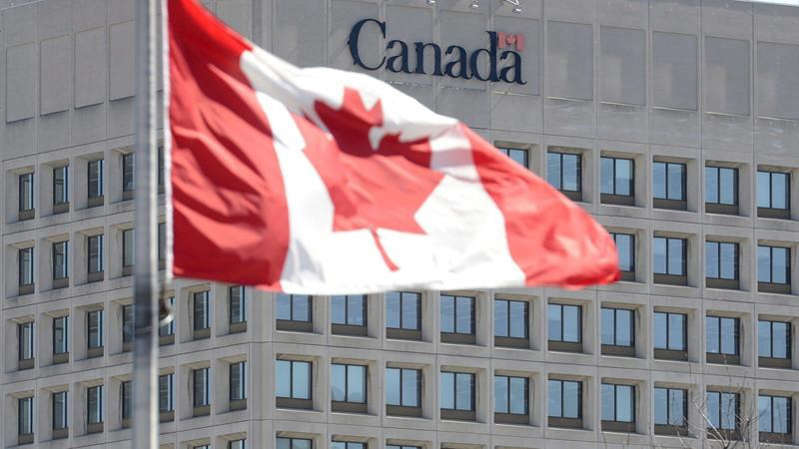
 Business2 days ago
Business2 days agoBureaucracy balloons while less than 50 per cent of government performance targets are consistently met
-

 conflict2 days ago
conflict2 days ago“Will Be in History Books”: Zelensky Hails Long-Range Drone Strike That Hit Dozens of Russian Bombers
-

 Crime2 days ago
Crime2 days agoTerror in Boulder: Woman set on fire during pro-Israel hostage walk
-

 Addictions1 day ago
Addictions1 day agoSaskatchewan launches small fleet of wellness buses to expand addictions care
-

 International12 hours ago
International12 hours agoDHS: Antisemitic terror suspect in Boulder is illegal Egyptian national, entered under Biden





